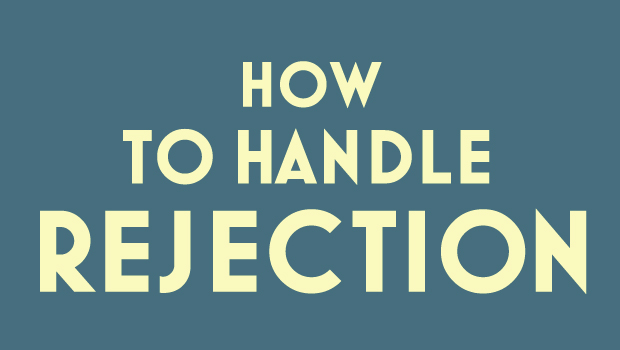
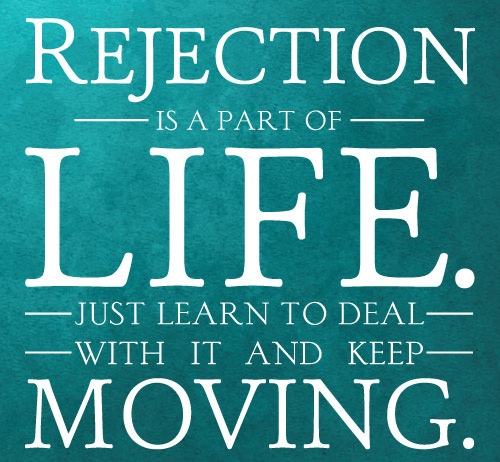
If you looked in the manual for “How to Become an Actor”, being able to handle rejection would probably be somewhere on the first page. Being an actor, or trying to become an actor is going to require you to face rejection dead in the face on a regular basis. Rejection just comes with the territory of wanting to be an actor. The only thing you can control is how you handle it, how you move on from it and take it with a grain of salt, without a damaged psyche and dwindling self-confidence.
So what are some of the steps in ensuing damaged control and making sure rejection doesn’t break you? We’ve listed some of the ways to go about it below.
Try not to take it personal: One of the biggest things in the film industry is that there are so many people vying for the same roles and the same opportunities. The industry is a competitive beast. So when you’re going out for a part, there are most likely 1,000 others who look like you and have the same level of talent. Actor, Sylvester Stallone (Rambo) says “I take rejection as someone blowing a bugle in my ear to wake me up and get me going, rather than retreat.“ You can’t take it personally when you aren’t selected for the part, or didn’t get a callback. The casting director’s job is to find the right person for the role; it’s not to make sure nobody’s feelings get hurt. It doesn’t mean they didn’t like you, in fact they may have loved you, but you just didn’t fit the exact criteria for what they were looking for in that role. Its up to you to deliver your best performance and leave the audition at the door.
Listen to what they’re saying: The most honest things are often the hardest for us to take. So when an acting coach, or somebody that sees our work gives us some unpleasant feedback, we really need to do our best to listen to what they’re saying. Bare in mind, there’s a difference between constructive criticism and somebody who’s just trying to break you apart. It’s important that you listen to their feedback and distinguish between the two yourself. If it’s from a trusted source, or somebody you respect, it’s definitely going to be worthwhile to listen to what they said and see what you can apply for the next time to make it better. This is easier said than done, but do your best to not get super emotional and sensitive when somebody rejects you or turns you away. Find out what they think you need to work on, so you can get better.
Get Better: Drake has a famous line from one of his songs, “don’t get bitter, just get better”. This definitely applies to actors as well. When you get rejected, instead of responding with anger and resentment that does nothing but boil your own blood, you need to work on your stuff and become better. Use it as fuel to your fire in improving your craft and becoming a better actor. You need to say to yourself, “Okay, what can I do to get better?” If you can walk away from rejection with that sort of positivity and action, you will eventually start to succeed in a very big way. At the very least, you won’t sit in a pity stooper when you get rejected, but instead, keep your head up and make the best of the situation.
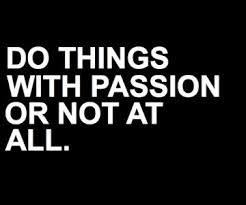
Stay Persistent: Every successful person will tell you that they had to handle rejection on countless occasions. They had to deal with doors being slammed in their face, people telling them they weren’t talented, or were crazy, or people who didn’t believe in them. If you don’t have the ability to bounce back from rejection with unwavering enthusiasm, then you will have a tough time succeeding in an industry as tough as the film industry. Talent Agent, Anne Marie Perrault says, “Prepare yourself that the rejection will come, but be sure that you love what you’re doing and you’re going to continue to work at it and get better until those “No’s” starting turning into Yes’s”. If you commit yourself to it, work hard through training and stay persistent, your success will only be a matter of time.”
Sure rejection sucks and forces us to retreat back into our shells for a while, but it’s all about the bounce back. It’s all about working at it, getting the right mind set, working on your skills, and making sure you have the right attitude so that bounce back time is faster every time. Pretty soon you will develop the thick skin that is required of an actor, and rejection will be nothing more than an opportunity for you to go through another door with someone else who sees the potential in you.
It’s up to you and how you let it affect you. Rejection will only break you if you let it.
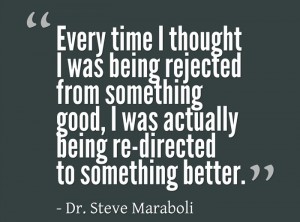
Enjoyed reading our blog post? Share it with your friends and followers on social media! Thank you for your support!

Whether you believe it or not, you don’t have to be a stand up comedian to be a good comedic actor. In fact, a good portion of the best comedy actors would be fish out of water if they ever tried st...
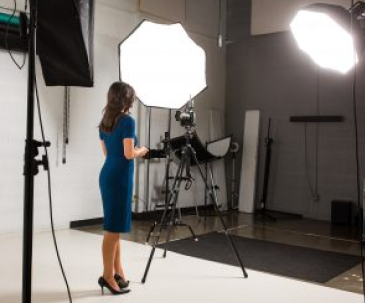
Breaking into the entertainment industry can be an exciting yet challenging journey. At AMP Talent Group, we understand the complexities and hurdles aspiring artists face....

The truth is that some people can be great actors but terrible at auditions. There’s the pressure, the nerves, and the last minute notice that can sometimes eat away at a person to the extent that t...

Explore the dynamic world of AMP Talent Group and AMP it up PR, where innovation meets global influence in the entertainment and PR agencies near me, industry. This blog post delves into their journey...

Explore the transformative power of AMP it up PR, Toronto's award-winning influencer and public relations agency. Dive into our bespoke services in publicity, PR, digital marketing, and branding desig...

Dive into the heart of the entertainment world with 'Mastering the Entertainment Industry: Your Path with AMP Talent Group.' Whether you're exploring casting agencies in Toronto, seeking top talent ag...

Being a top talent, model, and branding agency situated in Toronto, Ontario, we at AMP Talent Group take great pride in our work. We understand that brands and public figures must have a robust online...

As the countdown begins to the much-anticipated year of 2024, AMP Talent Group talent agency and pr agency proudly reflects on an extraordinary journey that began in 2004. From our humble roots as a T...

In the bustling world of entertainment and branding, finding the perfect voice over talent agencies is a critical step toward creating memorable and impactful content. Whether you're producing commerc...

In the fast-paced world of business, establishing your brand as a household name demands strategic visibility in reputable media publications—online, in magazines, and across various platforms. This...

In the dynamic realm of online promotion, understanding the functions of a digital marketing agency is key. Let's unravel the intricate tapestry of services these agencies offer and how they contribut...

In the bustling landscapes of Toronto, New York, Los Angeles, and beyond, AMP It Up PR emerges as the beacon of distinction in the realms of PR and digital marketing. As an award-winning agency, our c...

Welcome to the exciting world of modeling! Whether you're just starting out or looking to take your career to the next level, this blog post is packed with essential tips and expert advice to help you...

In today's digital age, a strong online presence has become paramount for artists, brands, and businesses alike. It is no wonder that a well-designed website has become a powerful tool in unlocking su...

Are you an aspiring actor with the desire to take your craft to the next level? Whether you're just starting on your acting journey or looking for ways to further hone your skills, reading books dedic...

In today's digital realm, traditional advertising methods are no longer enough to capture the attention and trust of a savvy consumer base. As people increasingly turn to social media and online platf...

In a highly competitive business landscape, it's crucial for entrepreneurs and brands to find innovative strategies that can propel their growth to new heights. One such strategy that holds immense po...

In the fast-paced world of business and entertainment, standing out from the crowd is essential. Whether you're an aspiring artist, a budding entrepreneur, or a seasoned professional, getting noticed ...

At AMP Talent Group, our journey as a talent and branding agency has been filled with valuable experiences and lessons learned. We are incredibly excited to share that our achievements have been recog...

In today's fiercely competitive business landscape, the importance of a well-designed logo cannot be overstated. As logo branding continues to evolve, staying updated on the latest trends is crucial f...

We are thrilled to announce that AMP Talent Group has been honored as a Top Branding Agency That Delivers Results by DesignRush. This prestigious recognition not only reflects our dedication to excell...

Breaking into the world of acting can be challenging, but one of the most crucial aspects of building a successful career is getting seen by casting directors. These gatekeepers of acting opportunitie...

Social media has created a new breed of celebrity: influencers. Marketers are using these influencers, who have a significant following on social media platforms, to promote their brands. Influencer m...
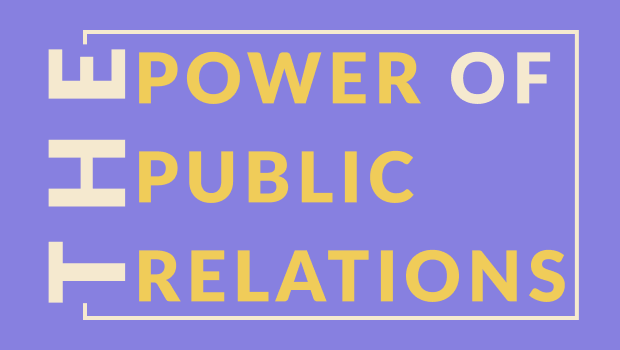
In today's fast-paced world of business, building and maintaining a strong brand reputation is more important than ever. And that's where Public Relations (PR) comes in, as it focuses on building trus...

Building a strong brand is essential for businesses of all sizes. It helps create brand awareness, build credibility, and establish a positive reputation among customers and stakeholders. In today's d...

Digital marketing has become essential in today's business world. It helps businesses of all sizes attract, engage, and convert potential customers into loyal brand advocates. Digital marketing compri...

Building a strong brand online is crucial in today's digital age. Whether you're an aspiring actor, musician, or any creative professional, establishing your brand presence can open doors to exciting ...

Embarking on an acting career requires dedication, perseverance, and a strategic approach. While the path to success may not always be straightforward, there are certain steps you can take to boost yo...

“As actors, we have to deal with rejection so much more than any other business. So I don’t care how much of a genius you are, if you don’t have the propensity to be able to get back up every ti...
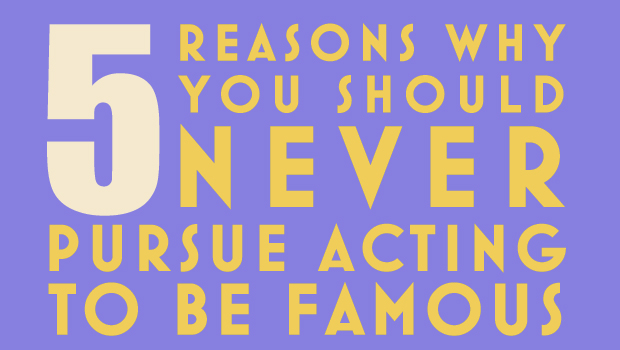
“I want to be an actor!” Even just admitting those words is a huge step in the direction of your dreams. For a lot of people it’s a scary step because it finally becomes real when you say it out...

Welcome to the glamorous world of modeling, where showcasing your unique style and personality takes center stage. Whether you dream of strutting down runways, gracing magazine covers, or becoming the...
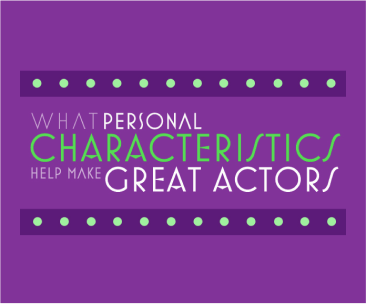
What personal characteristics help make GREAT ACTORS? This is probably a question that will intrigue a lot of people. What is it about certain people who make them great performers? Or at least have ...

Comedy Acting: There’s an old adage, “dying is easy: comedy is hard.” This is very true — comedy is difficult because it requires a certain amount of spontaneity, creativity, and ability to pl...

In today's digital age, self-tape auditions have become an integral part of the casting process. With the convenience and flexibility, they offer, more actors are embracing the opportunity to showcase...

In the era of technology and social media, building a strong social media following is essential for anyone looking to establish their brand or boost their online presence. Whether you're an influence...

Whether you want to improve your voice work, or simply just get started in the voice over industry, it’s definitely a great tool for an actor. Voice work should not be taken lightly as it’s just a...

Marketing and promotion are important for actors at every stage and something that should not be overlooked. Here we look at ways YOU can build a smart marketing strategy and start to create a profess...

Whether you believe it or not, you don’t have to be a stand up comedian to be a good comedic actor. In fact, a good portion of the best comedy actors would be fish out of water if they ever tried st...

Breaking into the entertainment industry can be an exciting yet challenging journey. At AMP Talent Group, we understand the complexities and hurdles aspiring artists face....

The truth is that some people can be great actors but terrible at auditions. There’s the pressure, the nerves, and the last minute notice that can sometimes eat away at a person to the extent that t...

Explore the dynamic world of AMP Talent Group and AMP it up PR, where innovation meets global influence in the entertainment and PR agencies near me, industry. This blog post delves into their journey...

Explore the transformative power of AMP it up PR, Toronto's award-winning influencer and public relations agency. Dive into our bespoke services in publicity, PR, digital marketing, and branding desig...

Dive into the heart of the entertainment world with 'Mastering the Entertainment Industry: Your Path with AMP Talent Group.' Whether you're exploring casting agencies in Toronto, seeking top talent ag...

Being a top talent, model, and branding agency situated in Toronto, Ontario, we at AMP Talent Group take great pride in our work. We understand that brands and public figures must have a robust online...

As the countdown begins to the much-anticipated year of 2024, AMP Talent Group talent agency and pr agency proudly reflects on an extraordinary journey that began in 2004. From our humble roots as a T...

In the bustling world of entertainment and branding, finding the perfect voice over talent agencies is a critical step toward creating memorable and impactful content. Whether you're producing commerc...

In the fast-paced world of business, establishing your brand as a household name demands strategic visibility in reputable media publications—online, in magazines, and across various platforms. This...

In the dynamic realm of online promotion, understanding the functions of a digital marketing agency is key. Let's unravel the intricate tapestry of services these agencies offer and how they contribut...

In the bustling landscapes of Toronto, New York, Los Angeles, and beyond, AMP It Up PR emerges as the beacon of distinction in the realms of PR and digital marketing. As an award-winning agency, our c...

Welcome to the exciting world of modeling! Whether you're just starting out or looking to take your career to the next level, this blog post is packed with essential tips and expert advice to help you...

In today's digital age, a strong online presence has become paramount for artists, brands, and businesses alike. It is no wonder that a well-designed website has become a powerful tool in unlocking su...

Are you an aspiring actor with the desire to take your craft to the next level? Whether you're just starting on your acting journey or looking for ways to further hone your skills, reading books dedic...

In today's digital realm, traditional advertising methods are no longer enough to capture the attention and trust of a savvy consumer base. As people increasingly turn to social media and online platf...

In a highly competitive business landscape, it's crucial for entrepreneurs and brands to find innovative strategies that can propel their growth to new heights. One such strategy that holds immense po...

In the fast-paced world of business and entertainment, standing out from the crowd is essential. Whether you're an aspiring artist, a budding entrepreneur, or a seasoned professional, getting noticed ...

At AMP Talent Group, our journey as a talent and branding agency has been filled with valuable experiences and lessons learned. We are incredibly excited to share that our achievements have been recog...

In today's fiercely competitive business landscape, the importance of a well-designed logo cannot be overstated. As logo branding continues to evolve, staying updated on the latest trends is crucial f...

We are thrilled to announce that AMP Talent Group has been honored as a Top Branding Agency That Delivers Results by DesignRush. This prestigious recognition not only reflects our dedication to excell...

Breaking into the world of acting can be challenging, but one of the most crucial aspects of building a successful career is getting seen by casting directors. These gatekeepers of acting opportunitie...

Social media has created a new breed of celebrity: influencers. Marketers are using these influencers, who have a significant following on social media platforms, to promote their brands. Influencer m...

In today's fast-paced world of business, building and maintaining a strong brand reputation is more important than ever. And that's where Public Relations (PR) comes in, as it focuses on building trus...

Building a strong brand is essential for businesses of all sizes. It helps create brand awareness, build credibility, and establish a positive reputation among customers and stakeholders. In today's d...

Digital marketing has become essential in today's business world. It helps businesses of all sizes attract, engage, and convert potential customers into loyal brand advocates. Digital marketing compri...

Building a strong brand online is crucial in today's digital age. Whether you're an aspiring actor, musician, or any creative professional, establishing your brand presence can open doors to exciting ...

Embarking on an acting career requires dedication, perseverance, and a strategic approach. While the path to success may not always be straightforward, there are certain steps you can take to boost yo...

“As actors, we have to deal with rejection so much more than any other business. So I don’t care how much of a genius you are, if you don’t have the propensity to be able to get back up every ti...

“I want to be an actor!” Even just admitting those words is a huge step in the direction of your dreams. For a lot of people it’s a scary step because it finally becomes real when you say it out...

Welcome to the glamorous world of modeling, where showcasing your unique style and personality takes center stage. Whether you dream of strutting down runways, gracing magazine covers, or becoming the...

What personal characteristics help make GREAT ACTORS? This is probably a question that will intrigue a lot of people. What is it about certain people who make them great performers? Or at least have ...

Comedy Acting: There’s an old adage, “dying is easy: comedy is hard.” This is very true — comedy is difficult because it requires a certain amount of spontaneity, creativity, and ability to pl...

In today's digital age, self-tape auditions have become an integral part of the casting process. With the convenience and flexibility, they offer, more actors are embracing the opportunity to showcase...

In the era of technology and social media, building a strong social media following is essential for anyone looking to establish their brand or boost their online presence. Whether you're an influence...

Whether you want to improve your voice work, or simply just get started in the voice over industry, it’s definitely a great tool for an actor. Voice work should not be taken lightly as it’s just a...

Marketing and promotion are important for actors at every stage and something that should not be overlooked. Here we look at ways YOU can build a smart marketing strategy and start to create a profess...

Whether you believe it or not, you don’t have to be a stand up comedian to be a good comedic actor. In fact, a good portion of the best comedy actors would be fish out of water if they ever tried st...

Breaking into the entertainment industry can be an exciting yet challenging journey. At AMP Talent Group, we understand the complexities and hurdles aspiring artists face....

The truth is that some people can be great actors but terrible at auditions. There’s the pressure, the nerves, and the last minute notice that can sometimes eat away at a person to the extent that t...
Notifications
How may I help you today?